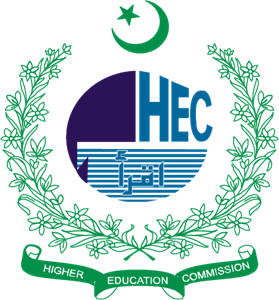An Effective and Efficient Implementation of OBE Framework within Constrained Pakistani Environment to Attain Desired Learning Outcomes
DOI:
https://doi.org/10.33317/ssurj.390Keywords:
Outcome based education, OBE Framework, OBE System Implementation, Undergraduate Engineering Program, Academic Control SystemAbstract
Outcome-based-education (OBE) is an educational theory that bases each part of an educational system around goals (outcomes). Pakistan Engineering Council (PEC) introduced the OBE in Pakistani engineering higher-education-institutions (HEIs),from 2018, in the replacement of previously followed Syllabus& Curriculum based education system. Key to success of OBE System is its continuous-quality-improvement (CQI) mechanism. The CQI mechanism design should be based on accurate assessment process and flawless evaluation of OBE System parameters; otherwise the OBE System’s benefits cannot be achieved. However, some HEIs have not devised an effective CQI mechanism and they still using classical procedures and academic tools in implementation of the OBE Framework, which cannot give desired results from the new System. This paper presents that; instead of presently employed loose-control, a modified stringent control strategy for academic activity and employment of latest technology, can make the CQI mechanism, more effective and efficient. This paper therefore presents a two-fold contribution. At first, the implementation problems of the OBE System are critically analyzed. Secondly, few modifications in the existing approaches have been introduced to achieve the desired results from the recently adopted OBE system.
References
Donnelly, K. (2007). Australia's adoption of outcomes-based education: A critique. Issues In Educational Research, 17(2), 183-206. Retrieved from http://www.iier.org.au/iier17/donnelly.html
Allais, S.M. (2007). "Education service delivery: the disastrous case of outcomes-based qualifications frameworks". Progress in Development Studies. 7(1): 65–78.
Austin, T. (1996). "Goals 2000--The Clinton Administration Education Program". History of education: Selected moments of the 20th century. Retrieved from https://www3.nd.edu/~rbarger/www7/goals200.html
McGuinn, P. (2015). Schooling the state: ESEA and the evolution of the US Department of Education. RSF: The Russell Sage Foundation Journal of the Social Sciences, 1(3), 77-94.
Kennedy, K. J. (2011). "Conceptualising quality improvement in higher education: policy, theory, and practice for outcomes-based learning in Hong Kong". Journal of Higher Education Policy & Management. 33(3): 205–218.
Mohayidin, M. G. (2008). "Implementation of Outcome-Based Education in Universiti Putra Malaysia: A Focus on Students' Learning Outcomes". International Education Studies. 1(4) pp.147-160.
European Commission. (2012). "Commission presents new Rethinking Education strategy". European Commission.
Accord, W. (2012). International Engineering Alliance. International Engineering Alliance. Archived from the original on, 26 January 2012.
Rajak, A., Shrivastava, A. K., and Shrivastava, D. P. (2018). "Automating Outcome Based Education for the Attainment of Course and Program Outcomes,". In 2018 Fifth HCT Information Technology Trends (ITT)(pp. 373-376). IEEE.
Tshai, K.Y., Ho, J. H., Yap, E.H. and NgH. K. (2014). Outcome-based Education –The Assessment of Programme Educational Objectives for an Engineering Undergraduate Degree.Engineering Education,9(1),74-85.
Wong G. K. W. & Cheung, H. Y. (2011). "Evaluation of outcome-based approach in computer science education at sub-degree level,". In 2011 IEEE 3rd International Conference on Communication Software and Networks(pp. 142-146). IEEE.
Abdullah, S., Rahmat, R. A. A. O., Zaharim, A., Muhamad, N., Deros, B. M., Kofli, N. T., ... & Azhari, C. H. (2009). Implementing Continual Review of Programme Educational Objectives and Outcomes for OBE Curriculum Based on Stakeholders' Input. European Journal of Scientific Research, 29(1), 89-99.
Pappas, E., Pierrakos, O., & Nagel, R. (2013). Using Bloom’s Taxonomy to teach sustainability in multiple contexts. Journal of Cleaner Production. 48. 54–64.
Mahmood, K., Khan, K. M., Khan, K. S., & Kiani, S. (2015). Implementation of outcome-based education in Pakistan: A step towards Washington Accord. In 2015 IEEE 7th international conference on engineering education (ICEED)(pp. 166-170). IEEE.
Rajaee, N., Junaidi, E., Taib, S. N. L., Salleh, S. F., & Munot,M. A. (2013). Issues and challenges in implementing outcome-based education in engineering education. International Journal for Innovation Education and Research, 1(4), 1-9.
Kamran, M., Nisa, B. U., Fazal, M. R., Abid, M. I., & Abid, I. (2020). Implementation of the Outcome-Based Education System in Engineering Programs for Pakistan Engineering Council Accreditation Under Washington Accord Signatory. Science International (Lahore), 32(2), 197-206.
Manzoor, A., Aziz, H., Jahanzaib, M., Wasim, A., & Hussain,S. (2017). Transformational model for engineering education from content-based to outcome-based education. International Journal of Continuing Engineering Education and Life-Long Learning. 27(4), 266-286.
NED University. (2021). OBE Framework, Automotive & Marine Engineering Department, NED University of Engineering & Technology. Retrieved on 21 January 2021. Retrieved from the webpage; https://atd.neduet.edu.pk/OBE.
Simrock, S. (2008). Control Theory; CAS—CERNAccelerator School: Digital Signal Processing: Geneva, Switzerland; pp. 73–130.
PEC. (2021). Manual of Accreditation, Third Edition 2019, Pakistan Engineering Council. Retrieved on 29 September 2021. Retrieved from https://pec.org.pk/accreditation_guidelines.aspx.
Downloads
Published
How to Cite
Issue
Section
Categories
License
Copyright (c) 2022 Ashab Mirza, Dr. Saba Javed (Author)

This work is licensed under a Creative Commons Attribution 4.0 International License.









